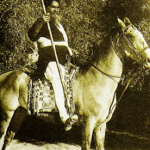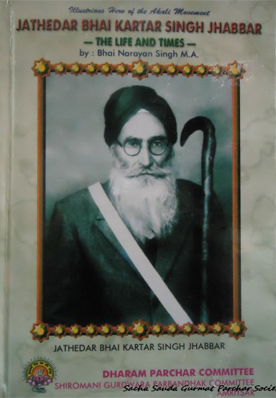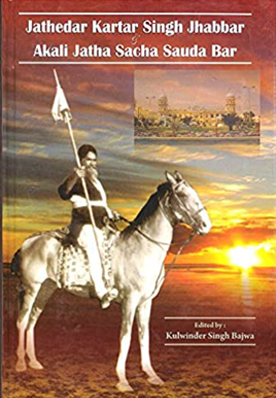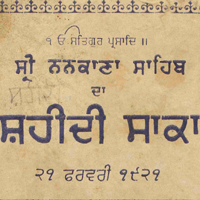Biography
One of the pioneering and preeminent leaders of the Gurdwara Reform Movement, Jathedar Kartar Singh Jhabbar played a prominent role in the social movement that subsequently culminated in the creation of the Shiromani Gurdwara Parbandhak Committee (SGPC) and the Shiromani Akali Dal. The goals of the reform movement to free control of gurdwaras from mahants and the British dovetailed with national efforts to liberate India from the British. Facing the power of the colonial bureaucracy, the Gurdwara Reform Movement was successful in wresting control over Gurdwara Babe di Beri in Sialkot, Harmandir Sahib, Gurdwara Panja Sahib, Gurdwara Sacha Sauda n 1920, and Gurdwara Tarn Taran, Nankana Sahib, and Gurdwara Guru ka Bagh in 1921. Faced with unrelenting pressure from members of this movement, the British ultimately conceded by passing the Gurdwara Act of 1925, ceding management of gurdwaras to the SGPC. Jathedar Jhabbar was jailed over a dozen times by the British to intimidate him into withdrawing from his mission. He remained undeterred until the movement succeeded in achieving its goals. Jhabbar’s contributions to the Sikh and panthic causes are recognized in many books and in the museum of Sikh history at the Golden Temple where his portrait has long been hung.







